As I sit here typing, half-naked in a very small concrete cell, having just eaten six mangoes and drunk over a litre of fluid in half an hour, the sweat drips off me in a steady trickle, and I wipe it frenetically from my brow and neck with an apricot-coloured facecloth I won yesterday. It feels a bit surreal. I should right now be enjoying a sundowner overlooking the lake at Kande Beach Resort, where I’m supposed to start a PADI Open Water Scuba course tomorrow. How did this happen?
 After a lovely evening last night in Blantyre with Liv, Emily, Damian and Mel (medics from England, Wales and Scotland), Rob and I left early this morning in convoy from Blantyre. We dropped Rob’s smaller car in Zomba, ready for the visiting ECT nurse next week, and carried on to Lilongwe where Rob would pick her up from the airport. On the radio, the BBC World Service was interviewing Susan Blackmore, a well-known English neuroscientist, about her view that free-will is an illusion but that we can still live happily knowing that. This is a view which I have in the last year or two actually come round to myself, and I was pleased to hear it discussed on air. Rob told me that he fundamentally disagreed at a basic level, but I decided to leave it there as I still wanted to go many miles in his car. (More accurately though, my brain went through an enormously complex calculation mostly unconscious to me and then floated the result up to consciousness where my sense of self picked it up and claimed it as its own, saying that it had decided. But let’s get on with the story rather.) Rob agreed to a minor detour to drop me in Salima, from where I planned to get a minibus up to Kande Beach, a distance of about 380km (estimate). I thought this journey would take maybe four or five hours on a minibus. I alit from Rob’s air-conditioned Rav4 at the minibus depot in the scorching heat, with my large and small backpacks, donning large straw hat to shield from the sun’s harsh rays. The depot was relatively quiet, being a Sunday, with only five or so minibuses and a single hideously overcrowded massive AXA bus present. Hawkers sold drinks, vetkoek/oliebollen/jamless donuts, sweets, trinkets, etc… and I immediately downed a coke and a fanta and five vetkoeke (they’re K10 (5p ) each). I tried not to look too conspicuous with my straw hat and twin backpacks, and stood idly chewing dough in the shade of the shelter, watching the passing show and trying to ignore that fact that most of the passing show were watching me. There was a guy holding a chicken firmly by the feet and flinging it in the faces of potential buyers, including me. I shook my head and the chicken clucked in alarm. Babies crawled around on the utterly filthy floor putting bits in their mouths, under their mother’s watchful eye. They evidently don’t regularly get too sick from this, and perhaps as a consequence grow up able to eat or drink almost anything. For the AXA bus, with it’s very high windows, the hawkers have long bamboo sticks with neat hooks on top, on which they hang small clear plastic packets of water and juice. The bus travellers remove a packet or two and drop down the required payment from the window. This must clearly be an honour system, as either party once they’ve got what they want could fairly easily renege on their part of the deal. Swallowing the last of my sticky oliebollen, I wandered over to the minibus rank and noticed that there was no sign for Nkhata Bay, the next significant town after Kande Beach. I asked the drivers there, who were peculiarly unhelpful, and pointed me to the row for Nkhotakota, way short of where I wanted to go. Yes, there was a bus there which could take me to a place called Dwangwa, from where I could get another to Kande Beach, no problem. I boarded the minibus which was pleasantly empty, and waited. I chatted a bit with two well-spoken guys on board, who told me they were brothers. They got out from time to time to call listlessly for passengers to Nkhotakota, so they were evidently in charge of the bus. Two other people dribbled on, while I sat reading my book. Then the whole "ooh-we’re-about-to-go-you’d-better-hurry" charade began, and although I’ve seen bits of it before, this was the first time I saw it from beginning to end and was able to put it all together. It forms a bit of a story, a drama starring the doorman and the driver, and manages to build surprising tension even though everyone knows the story well. First, the doorman starts with the door-close slide, which may or may not culminate in the actual slamming shut of the door. The culmination however is irrelevant, as the sound itself suggests that everyone is aboard, but we may still have space for you if you really run! The door slide is repeated two or three times, and finishes with the door left open, as it started. Second comes the hooting, repeated in bursts of varying length, letting everyone know the bus is here. (The hooting is a local variant, not heard in Zomba, as Zomba Town Council have outlawed hooting and shouting for business, as it was apparently disturbing the residents and hawkers. Good decision I say.)Third comes the engine start, which is exactly what it says. The driver sits with head out the window, calling for last stragglers, and occasionally revving the engine to show he really means business. Meanwhile the door is still open and the doorman is outside soliciting business, so the observant passenger will still not be persuaded. If you are standing outside and not careful though, the roaming doorman will grab your backpack and carry it to his minibus for you, "to help you", forcing you to follow. But to be fair, these two guys were really nice and not pushy at all apart from the current irritating charade. Fourth, and this is where I get caught out repeatedly, the driver shifts into gear and edges the minibus forward. It really fells like you’re going to leave any moment! The bus edges forward, bit by bit, and the driver will even swing the nose out into the road for added effect. The clear message this time is we’ve actually left already, but because we’re nice guys we’ll still stop for you. When he’s gone forward as far as he can without actually leaving, he slides the bus unashamedly into reverse and edges backward. This back-and-forth bluff may be repeated a few times, until everyone is aboard or the driver is bored, in which case he switches off the engine and we return to the very beginning. It’s maddening, but you can see why it works. The revving of engines and putting nose into traffic inspires real but misplaced confidence that departure is imminent. I’ve fallen for this charade a few times in Zomba. But I did feel sorry for the guys as they reluctantly (and quite nobly, I thought) drove off with only five passengers rather than have us wait any longer. My pleasure at having a half-empty minibus turned slowly to frustration as we stopped at every other pick-up point to re-enact the whole charade. We left Salima within an hour, just.
After a lovely evening last night in Blantyre with Liv, Emily, Damian and Mel (medics from England, Wales and Scotland), Rob and I left early this morning in convoy from Blantyre. We dropped Rob’s smaller car in Zomba, ready for the visiting ECT nurse next week, and carried on to Lilongwe where Rob would pick her up from the airport. On the radio, the BBC World Service was interviewing Susan Blackmore, a well-known English neuroscientist, about her view that free-will is an illusion but that we can still live happily knowing that. This is a view which I have in the last year or two actually come round to myself, and I was pleased to hear it discussed on air. Rob told me that he fundamentally disagreed at a basic level, but I decided to leave it there as I still wanted to go many miles in his car. (More accurately though, my brain went through an enormously complex calculation mostly unconscious to me and then floated the result up to consciousness where my sense of self picked it up and claimed it as its own, saying that it had decided. But let’s get on with the story rather.) Rob agreed to a minor detour to drop me in Salima, from where I planned to get a minibus up to Kande Beach, a distance of about 380km (estimate). I thought this journey would take maybe four or five hours on a minibus. I alit from Rob’s air-conditioned Rav4 at the minibus depot in the scorching heat, with my large and small backpacks, donning large straw hat to shield from the sun’s harsh rays. The depot was relatively quiet, being a Sunday, with only five or so minibuses and a single hideously overcrowded massive AXA bus present. Hawkers sold drinks, vetkoek/oliebollen/jamless donuts, sweets, trinkets, etc… and I immediately downed a coke and a fanta and five vetkoeke (they’re K10 (5p ) each). I tried not to look too conspicuous with my straw hat and twin backpacks, and stood idly chewing dough in the shade of the shelter, watching the passing show and trying to ignore that fact that most of the passing show were watching me. There was a guy holding a chicken firmly by the feet and flinging it in the faces of potential buyers, including me. I shook my head and the chicken clucked in alarm. Babies crawled around on the utterly filthy floor putting bits in their mouths, under their mother’s watchful eye. They evidently don’t regularly get too sick from this, and perhaps as a consequence grow up able to eat or drink almost anything. For the AXA bus, with it’s very high windows, the hawkers have long bamboo sticks with neat hooks on top, on which they hang small clear plastic packets of water and juice. The bus travellers remove a packet or two and drop down the required payment from the window. This must clearly be an honour system, as either party once they’ve got what they want could fairly easily renege on their part of the deal. Swallowing the last of my sticky oliebollen, I wandered over to the minibus rank and noticed that there was no sign for Nkhata Bay, the next significant town after Kande Beach. I asked the drivers there, who were peculiarly unhelpful, and pointed me to the row for Nkhotakota, way short of where I wanted to go. Yes, there was a bus there which could take me to a place called Dwangwa, from where I could get another to Kande Beach, no problem. I boarded the minibus which was pleasantly empty, and waited. I chatted a bit with two well-spoken guys on board, who told me they were brothers. They got out from time to time to call listlessly for passengers to Nkhotakota, so they were evidently in charge of the bus. Two other people dribbled on, while I sat reading my book. Then the whole "ooh-we’re-about-to-go-you’d-better-hurry" charade began, and although I’ve seen bits of it before, this was the first time I saw it from beginning to end and was able to put it all together. It forms a bit of a story, a drama starring the doorman and the driver, and manages to build surprising tension even though everyone knows the story well. First, the doorman starts with the door-close slide, which may or may not culminate in the actual slamming shut of the door. The culmination however is irrelevant, as the sound itself suggests that everyone is aboard, but we may still have space for you if you really run! The door slide is repeated two or three times, and finishes with the door left open, as it started. Second comes the hooting, repeated in bursts of varying length, letting everyone know the bus is here. (The hooting is a local variant, not heard in Zomba, as Zomba Town Council have outlawed hooting and shouting for business, as it was apparently disturbing the residents and hawkers. Good decision I say.)Third comes the engine start, which is exactly what it says. The driver sits with head out the window, calling for last stragglers, and occasionally revving the engine to show he really means business. Meanwhile the door is still open and the doorman is outside soliciting business, so the observant passenger will still not be persuaded. If you are standing outside and not careful though, the roaming doorman will grab your backpack and carry it to his minibus for you, "to help you", forcing you to follow. But to be fair, these two guys were really nice and not pushy at all apart from the current irritating charade. Fourth, and this is where I get caught out repeatedly, the driver shifts into gear and edges the minibus forward. It really fells like you’re going to leave any moment! The bus edges forward, bit by bit, and the driver will even swing the nose out into the road for added effect. The clear message this time is we’ve actually left already, but because we’re nice guys we’ll still stop for you. When he’s gone forward as far as he can without actually leaving, he slides the bus unashamedly into reverse and edges backward. This back-and-forth bluff may be repeated a few times, until everyone is aboard or the driver is bored, in which case he switches off the engine and we return to the very beginning. It’s maddening, but you can see why it works. The revving of engines and putting nose into traffic inspires real but misplaced confidence that departure is imminent. I’ve fallen for this charade a few times in Zomba. But I did feel sorry for the guys as they reluctantly (and quite nobly, I thought) drove off with only five passengers rather than have us wait any longer. My pleasure at having a half-empty minibus turned slowly to frustration as we stopped at every other pick-up point to re-enact the whole charade. We left Salima within an hour, just. 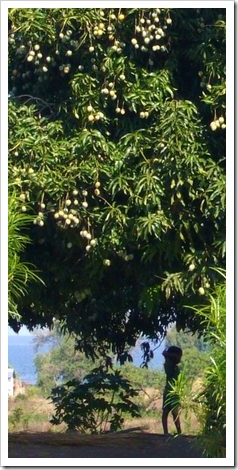 Then we stopped for every small settlement along the way. And hooted, revved, slid the door, shouted, waited. The mango trees were hanging heavy with ripe yellow and green mangoes, even close to the ground. There are far too many to know what to do with. I asked the doorman to stop to buy some, and he came out with me at the next place to help select. Once again, such helpfulness is the rule rather than the exception in Malawi, and seldom is there any evident secondary gain. He complained that business was very slow, even for a Sunday. I bought a bucket of 25 medium-sized ripe yellow mangoes for 100 kwacha (50p), plus K50 for the plastic bag. Good stuff. (The six I had tonight were very good, though two were a bit bruised and bashed in places.) The minibus did eventually fill up, quite alarmingly in fact. The back two rows (fully half the passenger capacity) was stacked to the roof with large sacks of rice, and the rest of the bus crammed with 15 adults, 4 kids, and a bucket of tiny dead fish from the lake, complete with flies. (These minibuses have an official capacity of 20, including driver.) At one point we stopped unexpectedly, but this time there was nobody around to get on. Some Chichewa was shouted by the doorman, and everyone disembarked. The doorman shouted to me that they had to loosen the brake pads, or something like that.
Then we stopped for every small settlement along the way. And hooted, revved, slid the door, shouted, waited. The mango trees were hanging heavy with ripe yellow and green mangoes, even close to the ground. There are far too many to know what to do with. I asked the doorman to stop to buy some, and he came out with me at the next place to help select. Once again, such helpfulness is the rule rather than the exception in Malawi, and seldom is there any evident secondary gain. He complained that business was very slow, even for a Sunday. I bought a bucket of 25 medium-sized ripe yellow mangoes for 100 kwacha (50p), plus K50 for the plastic bag. Good stuff. (The six I had tonight were very good, though two were a bit bruised and bashed in places.) The minibus did eventually fill up, quite alarmingly in fact. The back two rows (fully half the passenger capacity) was stacked to the roof with large sacks of rice, and the rest of the bus crammed with 15 adults, 4 kids, and a bucket of tiny dead fish from the lake, complete with flies. (These minibuses have an official capacity of 20, including driver.) At one point we stopped unexpectedly, but this time there was nobody around to get on. Some Chichewa was shouted by the doorman, and everyone disembarked. The doorman shouted to me that they had to loosen the brake pads, or something like that. 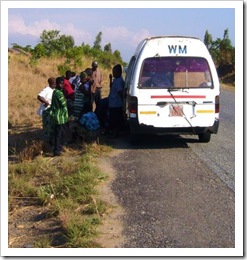 So we all stood around while the left front wheel came off, brake pads removed, rubbed down with hissing water, put back in, and everything (I really really hoped) put back into place. I watched in dismay as they splashed water over the steaming brake disc, when one of the passengers turned to me, suggesting I help them. I shrugged and told her I didn’t know how. I got back on with a fatalistic attitude, but in fact the rest of the drive to Nkhotakota was pleasantly uneventful.
So we all stood around while the left front wheel came off, brake pads removed, rubbed down with hissing water, put back in, and everything (I really really hoped) put back into place. I watched in dismay as they splashed water over the steaming brake disc, when one of the passengers turned to me, suggesting I help them. I shrugged and told her I didn’t know how. I got back on with a fatalistic attitude, but in fact the rest of the drive to Nkhotakota was pleasantly uneventful.
In Nkhotakota there was the first real whiff of a problem, but initially only a whiff. The journey had already taken twice as long as expected, and now the minibus brothers told me that there was a problem with the bus, and they were stopping here. However, we could continue on to Dwangwa in the matola parked in front of us. A matola is an unofficial but very common form of transport in Malawi, and consists of any vehicle (but usually a truck) which transports people informally for money. How is it different to a minibus taxi? Well, it’s not a minibus, for starters. And VSO doesn’t allow us to travel on matolas. I’m not sure how else it’s different. This one was a large open-deck truck, and this afternoon it certainly was in the business of transporting people. I was ushered into the front cabin next to the driver, while the back was still empty. I showed my willingness to go in back, but they insisted, me being white and all. So two backpacks, straw hat, bag of mangoes and the mzungu (whitey) went into the front cabin. And then once again the whole "we’re-about-to-leave" charade! Engine revving, moving forward and backward, endless hooting, but no door to slam obviously. I was starting to get a bit worried by this stage, as it was already about 3pm. The driver, a fat man with dark glasses and an attitude, didn’t smile ever, but chewed a matchstick slowly to pieces, spitting splinters of wood down to his feet. I asked his name and he wordlessly flipped up an ID badge with Jack Zulu written on it. Cool name, for a cool dude, but he didn’t look helpful. Two passers-by stopped at the open passenger window to talk to me. After the usual greetings and enquiries, I asked them about getting a minibus from Dwangwa to Kande Beach tonight. There was a bemused silence, and I felt they hadn’t understood. Then they said "ah, no, not tonight", and then I hoped they hadn’t understood. I explained again, and they were more adamant, explaining that they were artists who also tried to get their wares to Kande Beach, and there was no transport after dark, and it would soon be dark, "you will see". And, alas, see I did. We eventually left, me in the front cab next to Jack, and another man squashed on my left. The front windscreen was surprisingly clean and clear, and with no seatbelts I’d potentially have a brilliant view of my impending death. The scenery, in fact, was stunningly beautiful, the most unrelenting "peaceful rural Africa" that I’ve seen so far. Small settlements, sometimes only five or six mud huts, flashed by, interspersed with areas of cultivated fields and light woodland. Extra bits of green were starting to show themselves, and the previously all brown fields now have bright shoots of early maize emerging in neat rows, thanks to the start of the rains. The road was winding, over undulating terrain. The late afternoon light bathed everything in a warm yellow glow. Stopping for a photo was out of the question, not only because Jack probably wouldn’t have it, but also because the back if the truck by this time was fully laden, absolutely packed with at least twenty people, and at least one goat and a chicken. At one point when someone got on, someone from the back came and told the passenger next to me to come sit at the back, which he did. This was a bit weird and made me feel briefly uncomfortable. The back of the truck was crammed with people, uncomfortably perched on bags or the edge of the truck, while I sat in front with an empty space next to me! Why was the other guy called back anyway? I put my large rucksack in the space to make it seem that it was being used.
At a later stop a large woman got off the back and came to sit in front next to me. Before she hauled herself in, she hoisted a scrawny grey chicken up on to the seat next to me, and once in she tossed it down between our feet. There in the dark recess it settled down to a pathetic intermittent clucking. I hoped it wouldn’t peck my mangoes or my toes. The woman’s head was neatly wrapped in green chitenge matching her smart dress, and she was everything you expect and want in an African mama: large, jolly, and talkative, and she tried briefly to convert me to Christianity. Her name was Mrs. B. I liked her, and parried her questions about my faith as honestly as I could without inviting further evangelism. She, like others on the minibus, was delighted that I could speak a few words of Chichewa. She has worked as a Seventh Day Adventist minister for 25 years, and her husband works at the sugar estate around Dwangwa. The chicken will serve as relish to her family’s nsima for tomorrow’s lunch. I do feel a bit sorry for these poor birds, hoisted and tossed and tied and hung, all while still very much alive, and I asked her if she’d give it some water. "No, not now. But tonight yes, and some maize." Good. No need to call the SPCA. Or VSO. I asked Mrs. B if I could get to Kande Beach tonight, and she felt sure I could, as there was an AXA bus coming through Dwangwa later. I would try that, I said. She took my number, and promised to phone to check I’d got there safely.
We arrived in Dwangwa at around 6pm. My Bradt Malawi Guidebook has this to say about Dwangwa: "Dwangwa is an odd little place, notable as much as anything for the odour of molasses that clings to the air, and it is rather short on aesthetic appeal." I got off the minibus as dusk was setting in, and it would be dark soon. The prospect of night-time, with nowhere to go in a strange Malawian town, wandering the streets, alarmed me a bit. I asked about busses to Kande Beach, and there was nothing until 8pm, which was too late for me. So I walked, heavily laden, along the main and only street, looking for a place to stay overnight. My guidebook has this to say about staying over in Dwangwa: "It would take a perverse nature to actually want to spend a night in one of the identikit resthouses clustered along Dwangwa’s main road." Well, a perverse nature or complete desperation, I would have them add! Three leering men came up to me, offering to help me but eyeing my stuff greedily and generally giving off bad vibes. I walked on quickly saying no thanks and they laughed amongst themselves. (Look, it’s not paranoia if they really do want to steal your stuff!) One of the first but neatest places I passed was Hassan Rest House, basic but quite adequate and charmingly organised. For a whopping K400 (£2), I got a small single room, with old rickety bed but clean sheets and pillow case and mosquito net . The roof was a single layer of corrugated iron, turning the cell into a large oven during the daylight hours. There was a blanket also, though this was quite superfluous in the withering heat. Also an electric socket for my laptop, and even an energy saving light bulb! In a tiny dark enclave at the back of my cell I found a large aluminium basin, evidently for washing. Some time later a short wiry and very old man staggered over the uneven ground outside to bring me a bucket of fresh cold water. He told me to bring the basin out, whereupon he swirled it out with water to rinse it, and sloshed it half-full with the remaining water. He was swift and practised, and quite delighted that I could speak a little bit of Chichewa. I rinsed myself off in the tiny back room, though within a few minutes the sweat overtook again. For supper I had a choice of 25 mangoes, though only ate six. The town outside was dark, busy and vaguely sinister, so I asked the owner if he could get me some drinks from the bar down the road. This he did with the greatest of pleasure, characteristically Malawian. I drank four cokes, a beer and about 600ml of water, and continued to sweat like a pig. Out back there was a long drop toilet, not nearly long enough for my liking as I leant forward to pee in the darkness, scattering a few cockroaches with my feet. (Once again, my head-torch was a winner.) Mrs. B from the matola phoned, true to her word, to check that I was safe. I return to typing on my laptop.
This is all quite exciting. It feels like I’m roughing it here, unexpectedly, and in that sense this is "the real thing". For many volunteers, this is satisfyingly outside of the realms of the civilisation we chose temporarily to abandon. This is what we fantasised about, and talked about excitedly at the VSO weekend training. This is what we all excitedly hoped and feared would happen to us while travelling and volunteering here. (Or perhaps it is just me?) But really, as I’ve hinted at before, my excitement betrays my real distance from the life I am so romantically dipping into. I’ve got electricity for my laptop, pockets full of kwachas, beers and cokes to drink, a mosquito net covering my comfortable bed, and the people outside are just going about their daily lives. It’s really pretty ordinary. Sometimes my own romanticism for the adventure irritates me.
So that’s how I got to Dwangwa. Tomorrow I head up to Kande Beach for a week’s holiday, joined by my good friend Naomi. But I know what you’re thinking. What you really want to know is how I won an apricot coloured facecloth and where you can get one too!! Well, that’s another story…..
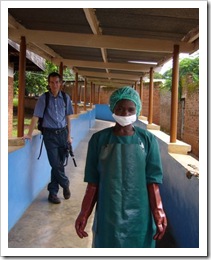 Back at Zomba Mental Hospital, Colin joined me in ward rounds, and I found it very useful and instructive to have a fresh person’s view of what goes on. I am so often bewildered by the psychiatric presentations of patients in the hospital, and they appear so different from what I was used to in Scotland. So Colin’s comments and experienced ear were “most welcome”, as the Malawians say. I just wish he had visited earlier! Colin also took on a daily special task of tutoring the new Clinical Officers who have recently started working at the hospital. They are officially permanent staff, and they are “clinicians”, sorely needed and only just in time. I leave in a few days, and then my role will have to be taken by one of the new Clinical Officers. They do five weeks of psychiatry in their third (final) year, and that’s all. They are very keen but without any post-graduate psychiatric training. Our overlap at the hospital will be almost fo
Back at Zomba Mental Hospital, Colin joined me in ward rounds, and I found it very useful and instructive to have a fresh person’s view of what goes on. I am so often bewildered by the psychiatric presentations of patients in the hospital, and they appear so different from what I was used to in Scotland. So Colin’s comments and experienced ear were “most welcome”, as the Malawians say. I just wish he had visited earlier! Colin also took on a daily special task of tutoring the new Clinical Officers who have recently started working at the hospital. They are officially permanent staff, and they are “clinicians”, sorely needed and only just in time. I leave in a few days, and then my role will have to be taken by one of the new Clinical Officers. They do five weeks of psychiatry in their third (final) year, and that’s all. They are very keen but without any post-graduate psychiatric training. Our overlap at the hospital will be almost fo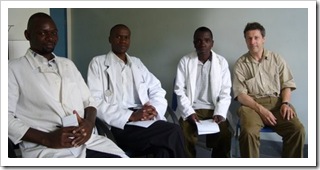 ur weeks – so very short! So I’ve been trying to focus my teaching efforts on any of the new CO’s I could find over the past three weeks, but haven’t had time for extra formal tutorials. Enter Colin (photo left)! He met with them (and sundry nursing and other students who wander in) every day, discussing psychiatric history taking, mental state examination and other basics. This is very valuable input, and gratifying for Colin as well I think.
ur weeks – so very short! So I’ve been trying to focus my teaching efforts on any of the new CO’s I could find over the past three weeks, but haven’t had time for extra formal tutorials. Enter Colin (photo left)! He met with them (and sundry nursing and other students who wander in) every day, discussing psychiatric history taking, mental state examination and other basics. This is very valuable input, and gratifying for Colin as well I think.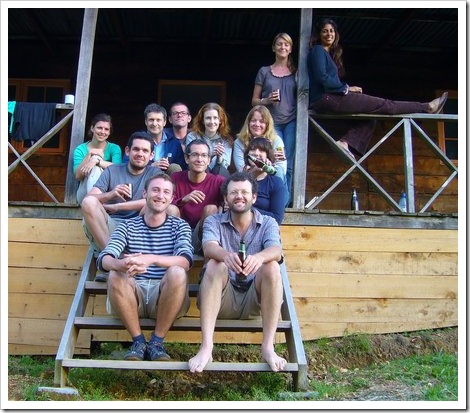
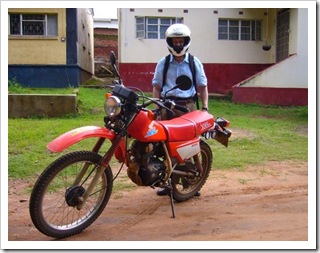
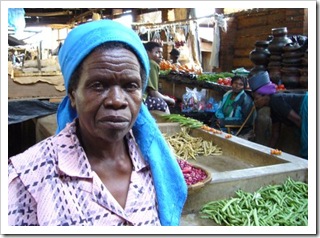
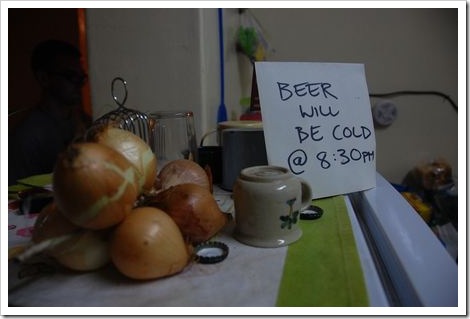
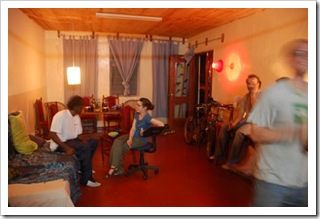
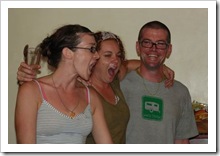
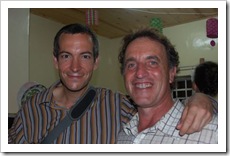
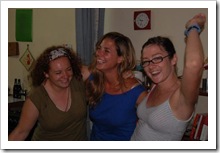
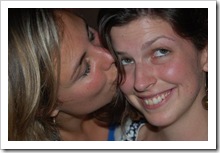
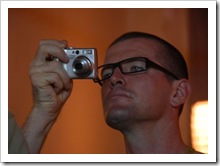
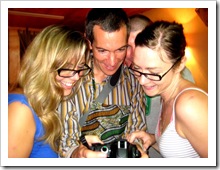
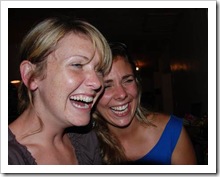
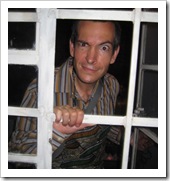




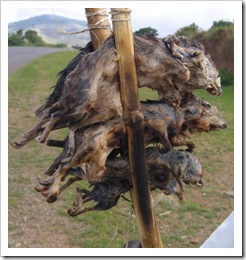
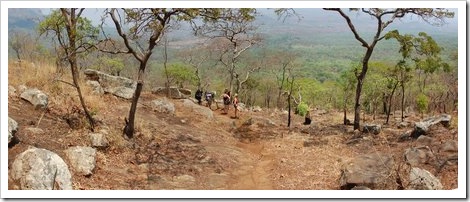 The walk up was very steep and very hot this time.
The walk up was very steep and very hot this time.

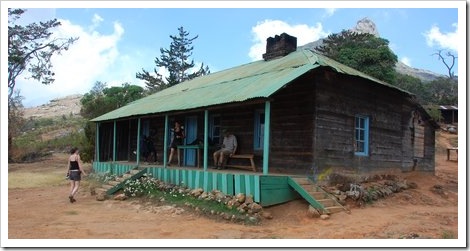







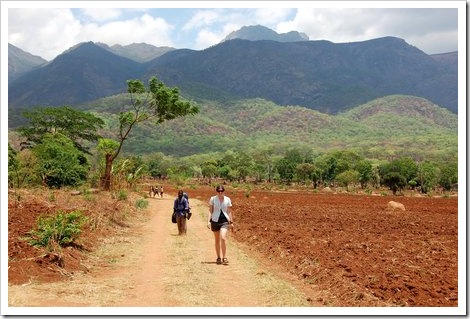
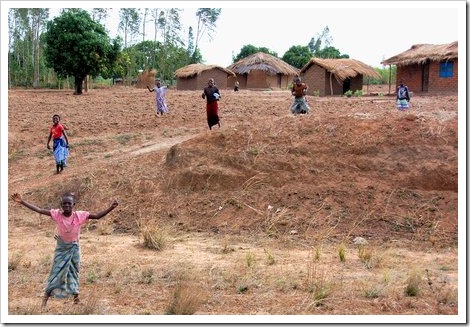
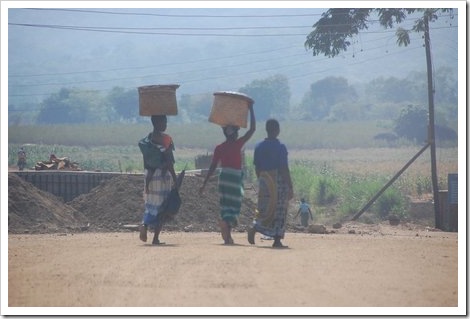


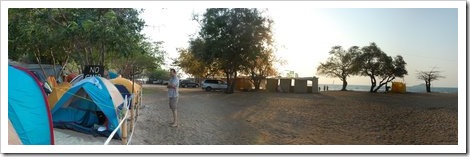 Rob inspecting our tents, having had enough of the sunset.
Rob inspecting our tents, having had enough of the sunset.



